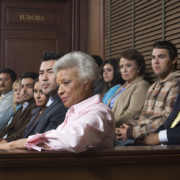Estate planning can be especially sensitive in blended families. In Massachusetts, we regularly meet clients in Gloucester, Rockport, Manchester By The Sea, and Beverly who worry about whether stepchildren can legally challenge their estate plans. When families merge, emotions and expectations about inheritance often collide, creating uncertainty and potential for dispute. Clear planning under Massachusetts law can help prevent stepchildren—or anyone else—from contesting your wishes after you’re gone. Understanding who has legal standing, how challenges occur, and how to protect your plan is critical to ensuring your estate is honored.
Understanding Who Can Contest An Estate Plan In MassachusettsUnder Massachusetts General Laws Chapter 190B, Article III, §3-401, any “interested person” may contest a will or petition the Probate and Family Court to challenge a trust. An “interested person” includes someone with a property right or financial interest that might be affected by the proceeding. Stepchildren are not automatically considered heirs under Massachusetts intestacy laws (M.G.L. c.190B §2-103), but they may still qualify as “interested persons” if they are named—or omitted—in a way that they believe is improper.For example, if a stepchild was previously promised a share of the estate or is listed as a contingent beneficiary, they could attempt to file a contest. However, if your estate plan clearly excludes them and the documents were executed properly, the legal grounds for such a challenge are limited.Common Legal Grounds For Contesting A Massachusetts Estate PlanWhen a stepchild or other relative contests an estate plan, they must assert one of a few recognized claims under Massachusetts law. These include:
Lack Of Testamentary Capacity:Under M.G.L. c.190B §2-501, the person making a will must be at least 18 years old and of sound mind. If a stepchild alleges you lacked mental capacity, they must show that you did not understand the nature of your assets, your family relationships, or the legal effect of the document at the time of signing.Undue Influence:One of the most common claims in blended families, undue influence arises when someone exerts pressure or manipulates the testator (the person making the will) into changing their estate plan. Courts analyze whether the influence destroyed the person’s free will.Fraud Or Forgery:If someone alleges that a will or trust was forged or signed under deceit, it can be invalidated. These claims require substantial evidence and are rarely successful without proof.Improper Execution:Under Massachusetts law, wills must be signed in writing and witnessed by at least two people (M.G.L. c.190B §2-502). Trusts must comply with execution formalities as defined in M.G.L. c.203E §401. If documents were not signed correctly, a stepchild could claim they are invalid.
Why Stepchildren Often Have Limited RightsMassachusetts intestacy statutes clearly distinguish between biological or adopted children and stepchildren. If you die without a will, stepchildren are not entitled to an automatic inheritance unless you legally adopted them. Only spouses, biological, or legally adopted children qualify under M.G.L. c.190B §2-103 and §2-114. This means that, absent adoption or explicit inclusion in your estate plan, stepchildren generally do not inherit by default.However, if you have provided for your spouse and that spouse later passes your assets to their biological children, stepchildren may indirectly benefit. This reality can create conflict among surviving family members if your estate plan does not spell out clear boundaries.Preventing Challenges To Your Estate PlanThe best way to prevent a stepchild—or anyone—from contesting your plan is to eliminate ambiguity and document your intent clearly. We typically recommend the following strategies for our North Shore clients:
Use A No-Contest Clause: Also known as an in terrorem clause, it discourages challenges by penalizing anyone who contests the will or trust and loses. Massachusetts recognizes these clauses under case law as enforceable if properly drafted.Create A Revocable Living Trust: Assets held in a trust avoid probate, reducing the opportunity for a public challenge. Under M.G.L. c.203E, trusts can remain private and are generally harder to dispute than wills.Document Mental Capacity: When executing estate planning documents, consider obtaining a physician’s letter or witness statements confirming capacity. This protects against later claims of incompetence.Communicate Intent Clearly: While not always comfortable, explaining your decisions to family members can prevent misunderstandings that lead to disputes.
Stepchildren And Trust ChallengesStepchildren may also attempt to challenge a trust if they believe they were unfairly excluded or if the trust terms conflict with their expectations. Under M.G.L. c.203E §604, beneficiaries may petition the court for a judicial proceeding involving trust administration. However, the burden of proof remains on the challenger. By properly executing and funding your trust—and keeping records of communications and amendments—you can significantly reduce the risk of a successful contest.The Role Of The Massachusetts Probate And Family CourtWhen an estate dispute arises, it is typically filed in the Probate and Family Court of the county where the decedent resided. The court will evaluate whether the will or trust complies with Massachusetts law and whether the challenger has standing. Probate litigation can be lengthy and emotionally draining, especially for blended families. A well-structured estate plan drafted under the Massachusetts Uniform Probate Code (M.G.L. c.190B) and Uniform Trust Code (M.G.L. c.203E) can save your family time, expense, and stress.Planning Strategies For Blended FamiliesEstate planning for blended families often requires balancing fairness with practicality. Some effective strategies include:
Separate Property Trusts: Maintain separate trusts for assets acquired before marriage to ensure those assets pass to your biological children.Joint Living Trusts: Married couples can create a single trust with clear instructions for distributions to both biological and stepchildren.Life Insurance Designations: Use insurance proceeds to equalize inheritances and reduce the likelihood of disputes.Prenuptial Or Postnuptial Agreements: These documents can clarify ownership rights and expectations in advance.
Early planning and careful drafting are the strongest defenses against later challenges by stepchildren or other family members.Why Legal Guidance Is CriticalMassachusetts estate planning laws are detailed and specific. An error in witnessing, titling assets, or drafting trust language can create grounds for a contest that might otherwise have been avoided. Our role is to ensure that every document complies with the statutory requirements, reflects your exact intentions, and is protected from potential challenges. We take the time to learn your family dynamics and develop strategies that promote harmony rather than conflict.
Frequently Asked Questions About Stepchildren And Estate Contests In MassachusettsCan Stepchildren Inherit If I Die Without A Will In Massachusetts?No. Stepchildren are not considered heirs under Massachusetts intestacy law unless they have been legally adopted. Under M.G.L. c.190B §2-103, intestate property passes to a surviving spouse, biological children, or adopted children. Stepchildren can only inherit if they are specifically included in your will or trust.Can I Legally Disinherit My Stepchildren In Massachusetts?Yes, you may choose to exclude stepchildren from your estate plan. Massachusetts law allows you to distribute property as you wish. However, to prevent misunderstandings, it is best to state your intent explicitly in writing rather than omitting their names entirely.What Happens If My Spouse Includes Their Children From A Prior Marriage In Our Trust?If both spouses create a joint trust, the terms control how assets are distributed after each spouse’s death. Unless the trust restricts changes, the surviving spouse may modify it. We often recommend separate trusts to preserve control over each spouse’s assets and avoid disputes among stepchildren and biological children.Can Stepchildren Contest A Trust After My Death?Yes, but only if they have legal standing. Under M.G.L. c.203E §604, a beneficiary or interested person may request a court review of trust terms. If stepchildren are not beneficiaries and have no financial interest, they generally lack standing to contest.Does A No-Contest Clause Stop Challenges In Massachusetts?A properly drafted no-contest clause can discourage challenges by threatening disinheritance if a person contests unsuccessfully. While these clauses are enforceable in Massachusetts, they do not prevent a challenge outright; they simply raise the risk for anyone considering one.How Can I Prove That I Was Of Sound Mind When I Signed My Will Or Trust?We often recommend signing in the presence of neutral witnesses, obtaining a doctor’s note verifying competency, or creating a short statement explaining your reasoning. These steps build evidence of capacity, making it harder for stepchildren to claim incapacity later.Can Stepchildren Sue My Biological Children Over My Estate?They can file claims, but the Probate and Family Court will only consider them if the stepchildren have legal standing and credible grounds. Proper estate planning—especially through trusts—can minimize the likelihood of such disputes.How Can I Make My Estate Plan Harder To Contest?Ensure every document complies with M.G.L. c.190B and M.G.L. c.203E, include clear no-contest provisions, use a trust to keep assets private, and regularly update your plan. Working with an experienced estate planning attorney ensures that each step is properly executed and documented.
Call The Sullivan Firm P.C. TodayAt The Sullivan Firm P.C., we help families across Gloucester, Rockport, Manchester By The Sea, Beverly, and throughout the North Shore create estate plans that stand up to legal scrutiny and family conflict. We understand how emotional blended family situations can be, and we take pride in drafting clear, enforceable documents that reflect your true intentions.Call The Sullivan Firm P.C. at 978-325-2721 for a free consultation. Our Gloucester law office proudly serves all of Essex County and the North Shore of Massachusetts. Let us help you create an estate plan that protects your loved ones and your peace of mind.







